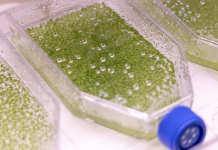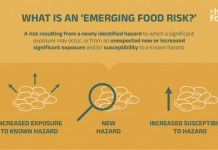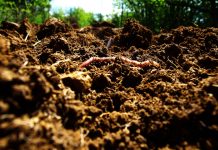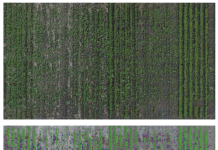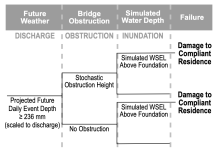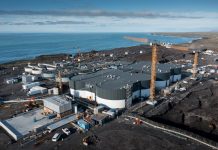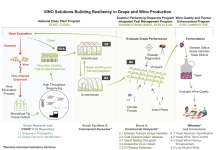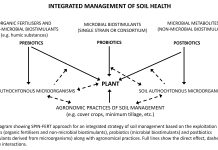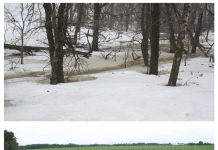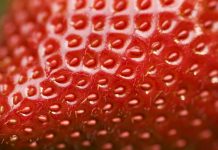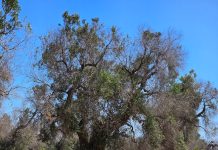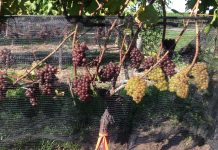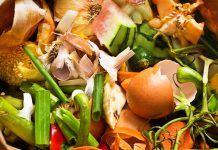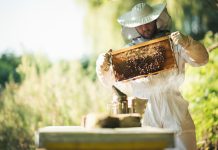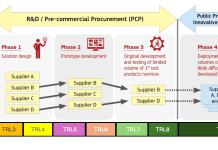Open Access Government produces compelling and informative news, publications, eBooks, and academic research articles for the public and private sector looking at health, diseases & conditions, workplace, research & innovation, digital transformation, government policy, environment, agriculture, energy, transport and more.
Home 2026
Archives
Berry and honey production in Alberta: Exploring the market system
Aleksandra Tymczak studies the berry and honey industries in Alberta’s agricultural system. Here, she discusses the challenges and opportunities for farmers to access markets, as well as the current capacity for the distribution system across Alberta’s agricultural system.
Beyond microbial fermentation: Reimagining biomanufacturing for low-resource environments
Although traditional biomanufacturing is based on microbial or mammalian cell culture, plants can be grown in bioreactors and hold enormous promise for use in resource-limited environments.
Vision-controlled plant assessments lead the way to more automation
Vision-based strawberry plant assessments are essential first steps towards increased automation, mitigating periodically high labour demands.
Improving food safety risk analysis for safer European food systems
The HOLiFOOD consortium is reimagining food safety risk assessment for the benefit of all stakeholders in the food chain.
Soil health: The importance of the rhizosphere
Lynette Abbott, Emerita Professor, The University of Western Australia School of Agriculture and Environment and UWA Institute of Agriculture, examines how the rhizosphere, a narrow collar of soil clinging to plant roots, is emerging as a key player in soil and plant health.
Improved herbicide stewardship with remote sensing and machine learning decision-making tools
Weeds pose the most persistent and costly threat to crop production in Canada, driving widespread herbicide use and accelerating the rise of herbicide-resistant species. This article explores how emerging AI- and trait-based decision tools can transform weed management and usher in a new era of precise, sustainable herbicide stewardship.
Probabilistic risk assessment (PRA) for sustainable water resources
Dynamic PRA provides sustainable flood risk decision support by identifying costs to present and future generations.
Terraforming life: Turning waste-to-value in Iceland’s circular economy
Sigurður Trausti Karvelsson, the Terraforming Life Project Coordinator and R&D Project Manager at First Water along with project partners; The Icelandic Farmers Association, Orkídea, SMJ Consulting Engineers, and Ölfus Cluster, present an initiative that transforms waste into resources within Iceland’s circular economy.
Resiliency strategies to overcome challenges facing the Canadian grape and wine sector
Resiliency strategies to overcome challenges facing the Canadian grape and wine sector.
Cerberus: The digital lord of the flies
Professor Francisco Rovira-Más from the Universitat Politecnica de Valencia discusses the Cerberus project, focusing on sustainable crop protection through data-driven decision-making in Mediterranean agriculture.
SPIN-FERT: Innovations for soil, impact for people and policies
The SPIN-FERT project, funded by the European Union’s Horizon Europe program, focuses on improving soil health in horticultural crops while promoting peat-free substrates.
Why riparian buffers fail to filter agricultural runoff contaminants
In this article, Dr David Lobb of the University of Manitoba examines why riparian buffers often fail to filter contaminants from agricultural runoff, particularly in cold climate regions.
Food environment dynamics research
Dr. Terrence Thomas and Murat Cankurt, Ph.D. at North Carolina A&T State University provide guidance on the fundamentals of food environment dynamics research.
Bexyl Project: Beyond Xylella – Europe’s United fight against Xylella fastidiosa, a silent plant...
Across the Mediterranean, olive groves have shaped landscapes, cultures, and economies for centuries. But in the last decade, this heritage has come under threat from a silent plant killer: Xylella fastidiosa.
Soil health: Assessing and monitoring using soil biology
Lynette Abbott from The University of Western Australia, focuses again on soil health, this time by assessing and monitoring using soil biological indicators.
Clones for viticulture in Canada: National clonal selection program
Jim Willwerth from CCOVI at Brock University highlights the importance of clonal propagation in grapevine cultivation, as new vines are grown from cuttings of a ‘mother vine’ to preserve desirable traits. He also advocates for a national clonal selection program to assess new clones for Canada’s cool climate.
Food waste as a complex social system: How computational social science can help
Researchers in Norway use computer modeling to understand the social complexities of food waste and to test potential interventions that could be part of the solution. How can computational social science contribute to this understanding?
Energy-efficient greenhouse production for emission-free food cultivation
Michel J. Verheul discusses the advancements in energy-efficient and emission-free greenhouse production in Norway, focusing on the innovative methods developed by researchers at the Norwegian Institute of Bioeconomy Research (NIBIO).
Honey production in Alberta: Grassroots extension services
Aleksandra Tymczak studies the beekeeping and honey industry, which is an established sector of Alberta’s agricultural system. In this article, she emphasizes the importance of knowledge within the industry and the growing capacity of grassroots extension services to both share and acquire knowledge.
How innovation procurement can boost European water resilience
As Europe faces rising water crises, PCP WISE brings innovation procurement to the forefront to develop smarter, scalable tools for real-time water management and climate resilience.


